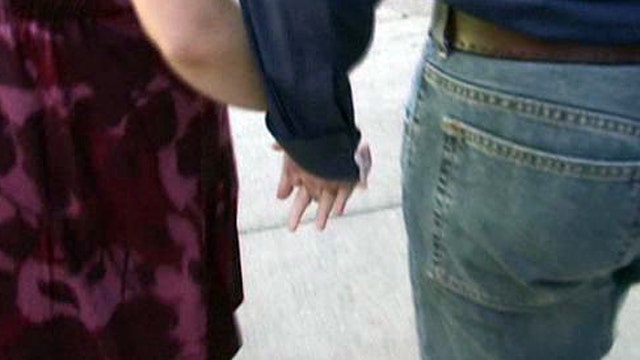Couples taking 'marriage sabbaticals' to avoid divorce
Is time off healthy or a way to avoid tacking marital problems?
A happy marriage is good for everyone in the family. It’s good for the couple, good for the children. Perhaps that’s why most people marry. More than 90 percent of couples in the Western world end up married by the age of 50, according to the American Psychological Association (APA).
But the happiness isn’t necessarily “ever-after.” The APA says 40 to 50 percent of those marriages end in divorce, and rates are higher for subsequent marriages. And interestingly, researchers have recently begun to discover that divorce has a potentially more detrimental impact on the daughter in the family.
Terry Gaspard’s parents divorced when she was seven. The author of the new book “Daughter of Divorce: Overcome the Legacy of Your Parents’ Breakup and Enjoy a Happy, Long-Lasting Relationship” told Lifezette the divorce was “the most defining event of her life.” She didn’t realize how significant their split was until she was much older, though — because no one talked about divorce in the 1960s, even in her native California where it was more accepted.
Gaspard is now a therapist, college instructor and author who specializes in divorce and its impact on families. She and her daughter collaborated on "Daughters of Divorce" and interviewed more than 300 women who were raised in divorced families — and found the experience had a unique impact on them.
"Daughters suffered more," Gaspard said about her findings. She often saw something she has called the "sleeper affect," in which the negative impact of the divorce hits people in young adulthood. Gaspard herself experienced it. She married young and stayed in that marriage for more than 16 years — trying to make it work even though she was unhappy. She didn’t want to repeat past mistakes.
She saw the same thing in her daughter. When she entered college, the daughter rushed into tumultuous relationships. She had abandonment and trust issues. These traits are common in many women, said Gaspard, whose parents divorced when they were young. Self-esteem issues are common, too.
Daughters’ romantic relationships tend to suffer as well. Gaspard’s research found that all adult children of divorce are at a higher risk of divorce themselves — double, in fact. But for daughters of divorce, that rate jumps to 60 percent.
Why Women?
A big component in this mix is the father/daughter relationship, which can affect young women's relationships with men down the road. "Daughters tend to take things more personally. Psychologically, they define themselves more through their relationships," Gaspard said. Girls tend to hang onto memories, she added. Positive and negative experiences stay with them later in life.
But there is hope. In her research and work, Gaspard has found ways to help girls when they are coping with their parents’ separation.
Co-Parenting. One of the most positive changes she is seeing is the parents’ willingness to co-parent their children after they split up. Maintaining an amicable relationship and being together for holidays and birthdays can do wonders for children.
Gaspard acknowledges that’s not always possible. In high-conflict divorces, she recommends that the exes attempt parallel parenting. That’s when mothers and fathers split the duties 50/50 so the children still have both parents in their lives, but not necessarily at the same time.
Staying Positive. When spouses divorce, there are inevitably hard feelings. Gaspard said it’s important to mask that in front of the children. Mothers and fathers should not speak poorly about their ex. Keep the issues between yourselves and "portray the other parent in a positive light," she stressed.
Divorce can be hard on children, even traumatic. Gaspard said everyone involved should consider counseling. "A lot of people think of divorce as short term. But those issues can stay with you for a while."
Pausing before Remarrying. Gaspard got remarried two years after she divorced, but she and her second husband were friends long before that. She encourages adults to wait at least four years before they remarry. Take your time to get to know your new partner. And remember that children see things very differently than adults do. Gaspard says before you take the leap, "Deal with the fact that you may be afraid of being alone, but it’s better than being with a partner who is wrong for you."
More from LifeZette.com:
Cash is Not King for Millennials
Our Struggling, Device-Addicted College Kids










































